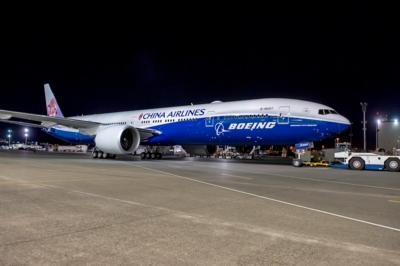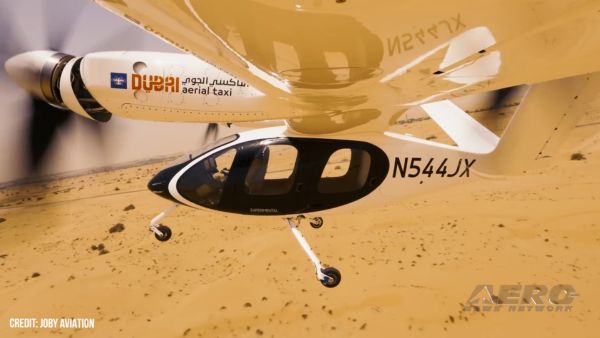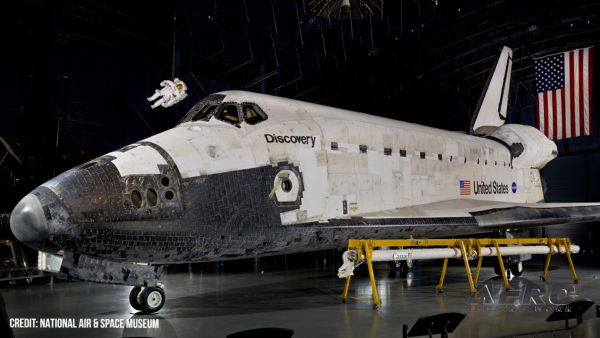Fri, Jun 28, 2024
China’s CAAC Pauses Deliveries to Analyze Revised Cockpit Voice Recorder
Boeing finally got some good news from back east, hearing that Chinese regulators are approving their widebody aircraft for importation again.

That should help them clear out its backlogs of 777 and 787s waiting to be delivered to customers in China, but the 737 Max family remains held up. The widebody Boeings didn't get to enjoy their delivery window for too long, being shut out from 2019 to only a couple weeks before New Year 2024. Only a few months passed until the Civil Aviation Administration of China announced that it would again suspend entry of new Boeing aircraft into the country. Deliveries were apparently halted this time over reviews needed for the 25-hour cockpit voice recorder, and the lithium battery that comes with it.Rumor has it that the 737 Max holdup will be lifted next month, allowing Boeing to clear out dozens of aircraft waiting for delivery to China. So far, since the beginning of the year, Boeing has managed to deliver about two dozen aircraft to Chinese clients, after ending last year with 85 waiting to be shipped out to their eastern clientele.

It's a little odd that the CAAC didn't approve of the new CVR Boeing now ships with its planes. The new unit meets the provision of the recent FAA reauthorization bill that demands all new aircraft come equipped with a cockpit voice recorder boasting a 25-hour retention span. The idea of a 25-hour minimum made its way into European rules a decade prior, but the FAA has only now been granted a mandate to establish its own framework to institute the same. Recent near-hits and mishaps have really driven home the point of longer cockpit recording systems, particularly with the embarrassment surrounding the highly visible Alaska Airlines MAX 9 flight that headlined for months earlier this year. After the aircraft landed, nobody on the ground staff had remembered to pull the breaker for the CVR, meaning the unit overwrote the entirety of the incident flight, losing crucial information and context right as the investigation began.
Other regulators, like the FAA and the EASA had no problem approving it for use, and the track record of duty-spec lithium batteries used in professional (and expensive) American products certainly doesn't give any reason to expect spontaneous combustion. Unfortunately the tight-lipped CAAC doesn't really say much about it to the public, leaving some to wonder whether it really was a simple objection to a new and unapproved battery, or a famously intrusive government making sure their rivals aren't shipping a tattletale system of their own.
More News
Also: Outlaw Prop 4 Mooney, Ready 4 Duty, Ukrainian F-16 Pilot Lost, Blue Origin Flt On his journey to become the first pilot to land solo on all seven continents, 19-year-old Etha>[...]
Also: DarkAero Update, Electric Aircraft Symposium, Updated Instructor Guide, OSH Homebuilts Celebrate The long-awaited Sonex High Wing prototype has flown... the Sonex gang tells >[...]
Discrete Code As used in the Air Traffic Control Radar Beacon System (ATCRBS), any one of the 4096 selectable Mode 3/A aircraft transponder codes except those ending in zero zero; >[...]
From 2023 (YouTube Edition): Deviation from the Historical Mean Racine, Wisconsin-based DeltaHawk is a privately-held manufacturer of reciprocating engines for aircraft and hybrid >[...]
Aero Linx: Formation and Safety Team (F.A.S.T.), USA The Formation and Safety Team (FAST) is a worldwide, educational organization dedicated to teaching safe formation flying in Wa>[...]
 Airborne 07.02.25: TikToker Arrested, Vietnam A/L Ground Hit, ATC Modernization
Airborne 07.02.25: TikToker Arrested, Vietnam A/L Ground Hit, ATC Modernization Airborne Affordable Flyers 07.03.25: Sonex HW, BlackShape Gabriel, PRA Fly-In 25
Airborne Affordable Flyers 07.03.25: Sonex HW, BlackShape Gabriel, PRA Fly-In 25 ANN's Daily Aero-Term (07.07.25): Discrete Code
ANN's Daily Aero-Term (07.07.25): Discrete Code Classic Aero-TV: DeltaHawk Aero Engine Defies Convention
Classic Aero-TV: DeltaHawk Aero Engine Defies Convention ANN's Daily Aero-Linx (07.07.25)
ANN's Daily Aero-Linx (07.07.25)




